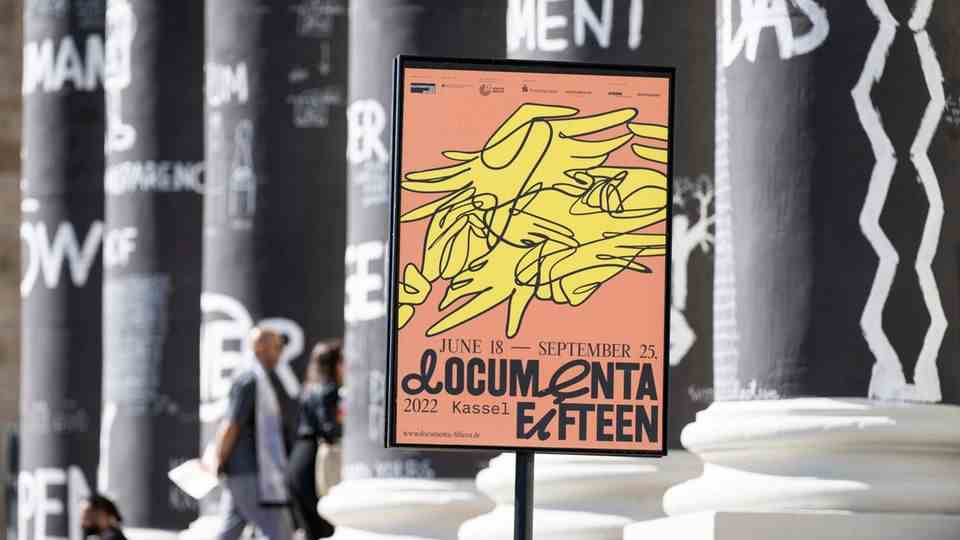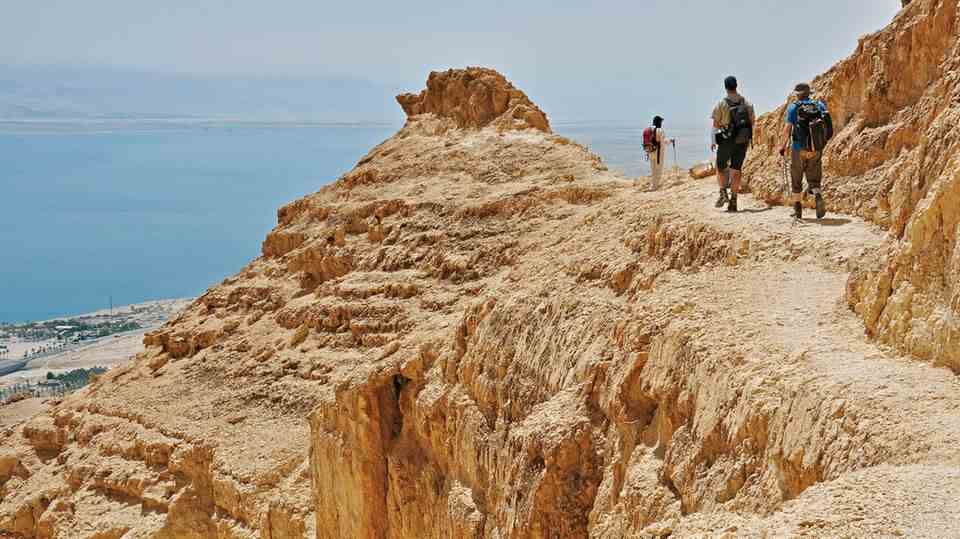interview
DIG President on Documenta
Volker Beck: “Anyone who invites BDS is just bringing anti-Semitism into the house”
Volker Beck, President of the German-Israeli Society
© Rolf Zoellner / Imago Images
The Documenta is stuck in an anti-Semitism scandal. Volker Beck, President of the German-Jewish Society, has filed a criminal complaint. A picture that shows nasty anti-Jewish caricatures is now being taken down. in the starinterview, Beck talks about the responsibility of the Documenta management and anti-Semitism in German society.
Volker Beck is fresh in office. He is the new President of the German-Israeli Society (DIG) and has a clear stance on the anti-Semitic derailments at the Documenta. Shortly after the opening of the world’s largest art show in Kassel, one work in particular came under criticism. A large painting by the artist collective Taring Padi, showing anti-Semitic caricatures: fangs, hooked nose, bloodshot eyes. There is also a pig with a Star of David with the inscription “Mossad”.
Mr. Beck, when did you first see these excerpts and what was your reaction?
I first saw these pictures on Twitter. My first reaction was: clearly anti-Semitic! It didn’t surprise me that something like this came up. I’m amazed at how many are amazed now. Who BDS (Boycott, Divestment and Sanctions – transnational campaign that wants to isolate Israel; ed.) invites, just brings anti-Semitism into the house.
You have now called the public prosecutor’s office. Why do you think this is the appropriate step for a work of art?
Because cultural politics doesn’t react. The Documenta management should have taken responsibility. Anti-Semitism per se is not a criminal offence. But the representations that we have seen here fall under hate speech and collective insult for me. Based on the standards of the Federal Court of Justice judgment on the Wittenberg Judensau, Taring Padi’s work is an infringing condition.
Ultimately, this ad is also an act of desperation in view of the unwillingness of the federal, state, city and Documenta management to take a decisive stand against anti-Semitism. I consider the Gaza-Guernica work to be at least as unbearable, but there is probably nothing that can be done legally.
The artist collective Taring Padi is quoted in a documenta statement as saying that the banner is “in no way connected to anti-Semitism”. How believable is that?
Ridiculous. I don’t understand at all how this picture can’t be construed as anti-Semitic. Here we see a modernization of the Judensau. This iconography is anti-Semitic all over the world.
Director General Sabine Schormann points out that this work was shown for the first time in Germany and Europe. In the debates about the art show, which was already controversial during its planning, supporters repeatedly referred to the Global South and its different perspective on political situations.
I find this whole discourse position construct of the “Global South” highly problematic and charged with identity politics. As if all people from these regions of the world had the same political attitudes. If you talk to people from Latin America – with the exception of Venezuela and Cuba – they will have a very different relationship to Israel than people in Syria or Iran.
The anti-Semitic large painting was covered in a first step. Now it will be hung. What do you think of this solution?
The veil was an exclamation point. A semiotic process that gives the work of art a framework. It is correct to remove the picture and ideally the Documenta line as well. It was all a failure with an announcement.
Volker Beck observes a shift in boundaries in the Documenta debate
Will you visit the Documenta?
I don’t know if I have time for that yet. I would definitely go there with a careful look and ask what the context of hatred of Israel and this anti-Semitism is.
Numerous artists are involved in the Documenta. Are you doing them an injustice if there is a suspicion of anti-Semitism over the entire art show?
After the current incidents, one should definitely be sensitized. Each of the works shown will have to prove itself. The Indonesian collective that invited to this documenta is said to be close to the BDS. In any case, it cannot be a coincidence that no Israeli artist collective is invited to this year’s art show. This void, against the background of BDS, contaminates the entire exhibition.
What does this documenta say about anti-Semitism in Germany in 2022?
There is a border shift. You could see that in the debates beforehand. Then it was said that anti-Semitism might be a problem, but we have to be able to talk about it openly. Anti-Semitism is becoming socially acceptable again in Germany. And that’s a huge problem. Today, anti-Semitism often takes the form of so-called criticism of Israel. That seems to be an acceptable outlet for many. The German discussion about Israel primarily says something about ourselves and not about the Middle East conflict.
You are the newly elected President of the German-Israeli Society. What do you see as your main tasks in the coming period?
The DIG has two main tasks: to cultivate friendship with Israel and, above all, to get young people excited about Israel. Next year we will celebrate 75 years of Israel. We hope that this friendship will be further strengthened. Our second main task is to inform about Israel, to show attitude and thus to fight anti-Israeli anti-Semitism, the accelerator of anti-Semitism.




